Rand Fishkin first became involved with the World Wide Web back in 1993. After helping many Seattle businesses setup their digital shop online, in 2002 he got involved in the field of search marketing. In 2004, Rand co-founded Moz with his mother Gillian, which is today one of the fastest growing software companies in the marketing world.
In his own words, Rand Fishkin uses the ludicrous title, Wizard of Moz. He co-authored and co-founded the Art of SEO, Inbound.org, and Moz.
Rand’s an addict of all things content, search, & social on the web, from his multiple blogs to Twitter, Google+, Facebook, LinkedIn, and FourSquare.
Listen in and listen to Rand Fishkin on SEO Tips For Small Business:
- How any small business can rank well on Google
- Why Google invented the driverless car (it’s not what you think)
- Why back links are still important
- How to identify your keywords
- Why you should complete your page title and meta data
- The power of social media and content when it comes to improving your rankings
This is pretty much a masterclass in search engine optimisation with one of the best in the world.
Oh, and I also explain why I podcast – three people have asked me this week, so I thought I’d explain.
Yep, another big, big episode of Australia’s #1 marketing podcast. Enjoy!
EPISODE TIMELINE
00:34 Welcome & overview
02:32 Why I podcast
06:01 Insights in to 99Designs and Netregistry
07:51 Interview with SEO expert and MOZ founder Rand Fishkin
58:31 My Top 3 Learnings from my chat with Rand
1:01:49 Motivational marketing quote of the week from Leo Burnett
1:02:06 Wrap-up and insights in to next week’s guests
MY TOP 3 LEARNINGS FROM THIS EPISODE
- Pay more attention to your SEO strategy – in fact, make SEO a major part of your marketing strategy.
- Identify your top keywords (those phrases your prospects key in to Google for which you’d like to appear on page one of the Search Results). Use Google Adwords to do this.
- Create dedicated pages for each product or service offering.
EPISODE SPONSORS (PLEASE SUPPORT THEM)
Netregistry special offer – Get your online marketing sorted. Websites from $79 / month.
99Designs free coupon – Get a design you’ll love. in 7-days. 100% guaranteed.
RESOURCES & LINKS MENTIONED
MOZ’s Open Site Explorer – Learn about your competition
Top 100 SEO Experts (the article in which Rand ranks #3)
Join The Small Business Big Marketing Forum
TWEETABLES
(GO ON, SHARE THE LOVE, YOU KNOW YOU WANT TO)
INSPIRATIONAL MARKETING QUOTE
“Make it simple. Make it memorable. Make it inviting to look at. Make it fun to read.”
Leo Burnett on Advertising
OVER TO YOU …
What was your biggest marketing learning or ah-hahahha moment from this episode?
Leave your comment below.
My guest and I respond to each and every comment.

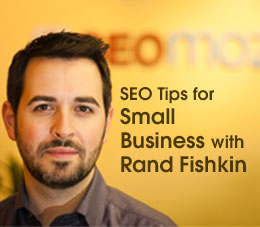

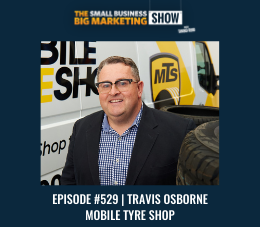
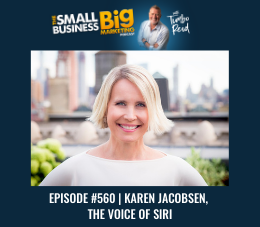
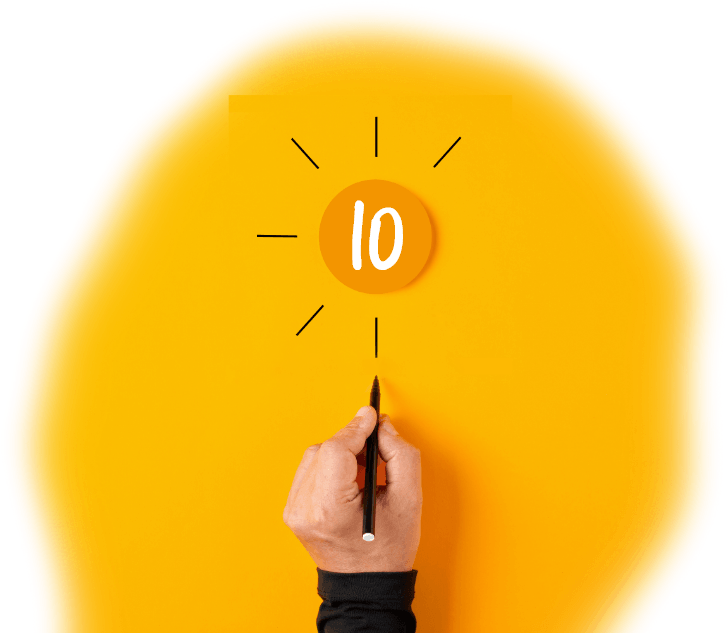
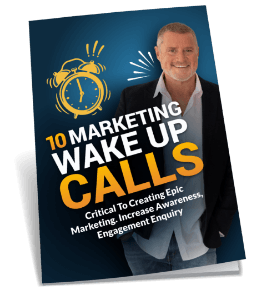
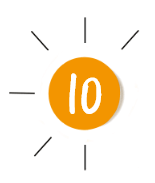 Grab My 10 Marketing
Grab My 10 Marketing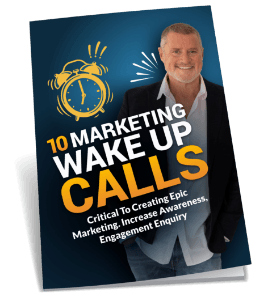
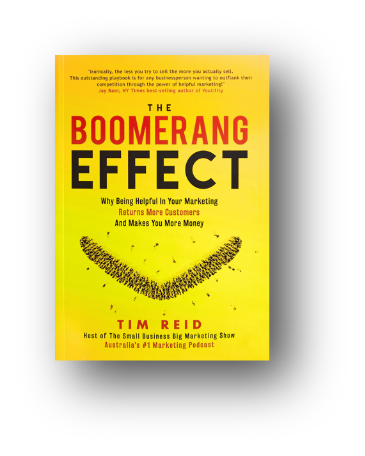
44 thoughts on “262 – Rand Fishkin on SEO Tips For Small Business”
Awesome Interview Timbo, I could have listened to it for hours. I enjoy the longer podcasts when the guest knows their topic. There is so much great content on MOZ.com to chew through. A great subject to learn more about, then have someone do it for you.
Thanks for the interview Timbo. Some solid ideas. Will implement!
Report back once you do, Terence. I do love hearing listener results.
Thanks Sean. I could have spoke to Rand for hours! Certainly agree with the idea of having a SEO expert on your virtual marketing tam.
Terrific interview – congrats to both of you! I guess one link that deserves to be in
the show notes is the free backlink tool Rand mentioned. It´s priceless in
order to learn about one´s competition: https://moz.com/researchtools/ose/
Great pick up, Jorn. I’ve added that link in to the show notes. Thanks for your kind words about the interview.
Congrats on an awesome interview from the Rock Star of SEO himself.
Thanks Cool Hand. That would have been like listening to SEO porn for a fella like you!
Wow some great content in there Timbo. How about the stat ‘20% of all searches have never been searched for before’
Hoo boy, what an episode.
I went to SEO church expecting a high priest, and you go and get the Pope.
Firstly, thanks Rand for your generous time & knowledge.
Most of what you said I was nodding my head, I knew or had heard/read that.
But, you managed to put it in context and perspective, a rarity in this world of ‘gurus’.
It is so reassuring when the guy who could write the Google/Bing/Yahoo bible just explains it in clear terms and sets our task as a fairly simple, straightforward one rather than complex.
A million thank you’s.
Wow what an interview Timbo, so insightful. I really took a lot away from that. Yes I would pay for a webinar with you and Rand. Keep it coming!
Fantastic and awesome to hear Rand Fishkin on the podcast! And great to hear his replies and advice as directly related to the issues of us SBBM’ers.
Totally great that he mentioned user experience as one of the major factors. I find user’s first reactions affecting how much patience a user has with a site, which affects engagement. Some folks are now saying that engagement is the new page rank when it comes to SEO.
I like to do a five second test to see what new visitors’ first impressions of the website may be, and if they can understand what the message or purpose of the site is, and whether they can sense a call to action. I just show the site to random people for 5 seconds and then close the browser. Also using the 5 second test tool at http://ismywebsitegood.com can give great info in this regard when there aren’t enough random people around to get reactions.
Thanks Brettski. I love your enthusiasm. Not sure a webinar will happen anytime soon, but do continue to watch this space.
An amazing stat, Drew. This Internet thing may take off!
Amen, Arn.
I was so busy while I was listening today, that I had to give it a second interview. Wow. Good stuff Timbo! Now I know what I can do when I finally get to buy my Google car! Who knew? But seriously…I need more pages…specific pages. They need to mention brush strokes, and rolling, and sheen, and coverage! One page for cabinet painting in Denver, and another about painting baseboards in Highlands Ranch. I’m not going to work on getting my buddies to let me blog for them, and I am not going to pay for a link on Thatpaintingguy.com. That would be pointless! Good stuff. And man, was he a good guy or what!? Love that!
You got it, Nick. Do a couple of specific pages and post them in the Forum for some constructively loving feedback ;0)
Timbo you’ve outdone yourself with this one. One more aspect – Rand (a great name for the Silicon Valley) highlighted that not every small business can produce their own content. And that people have relative strengths (e.g. a great podcaster might not be so great at writing a book). Anyway on that note I have published again this week – check it out: http://wealthontrack.com.au/mark-todd-your-money-your-call-david-de-garis/
Yeah I agree with Nick this was the sort of show that I am going to go back and
listen to again.
yeah I know, I was the same when I heard that stat. I heard that and thought to myself, hang on I must have misheard that, then they said it again and I’m like WHAT, that is crazy!!!
Yeah I agree with Sean, I loved the fact that he was happy to sit there and keep answering all your questions, what a gentleman.
TIMBO!!!!! awesome episode. I’m listing this one down there as one of my favorite of all time. How cool was Rand, easy going, happy to answer any question you asked him, completely understood us small business owners and just keep it real and easy for us to relate to.
My big take away from the show was if you don’t like doing blogs or social media then don’t do it.
Everything you read and listen to these days keep saying you need to do this and that and if you’re not doing it then you’re going to fail.
And yet Rand was like, nah guys don’t do what you don’t want to do. As long as you know your keywords, know what your customer is looking for and wants and you make it easy for your customer then you will be fine.
And yes a bit cheeky of you at the end to ask to get him on more often, but hey if you don’t ask you never know right 🙂
One thing I do know is that now that I know how level headed and easy to understand he is I will be subscribing to his emails and will try and follow him on my social media platforms so I can keep up to date with everything he puts out.
Timbo, thanks for having this awesome guest on the show. Rand, thanks for taking the time to explain SEO. I honestly thought I was going to give this episode a miss, which I’d never expect to say about a SBBM podcast, however, I thought it would be way over my head and bore me to tears. That’s exactly how I’ve felt every other time I’ve ever read or heard about SEO. I’m not sure why I clicked listen afterall, but I’m so glad I did. I finally get it!!! 🙂 Rand explained SEO in a way that makes sense to someone like me, who isn’t techie and into all this “new-fangled, internet mumbo jumbo” (I crack myself up). The practical examples helped me to understand how I can apply the advice to my own website and improve my online presence. FINALLY! Someone who made it sound simple. Thank you both so much!
Thanks Steve. Rand’s advice on focussing our content creation on what we are good at is solid advice for all marketers – especially those with limited resources.
Be sure to implement though, young Benny me Boy.
Our pleasure, Jolie. There’s nothing I love more than pulling back the curtain on a marketing concept that bamboozles many small business owners. Well actually, I love chocolate slightly more ?
Excellent episode Timbo. I have been trying to learn about SEO recently but most the people I have listen too go into “geek talk” from the off and loose me! Rand put it in terms I could understand.
Love the statistic about 20% of searches being first time searches …. it has started a new game in the office to try and come up with quirky google searches.
This goes down as a refined gold episode not dripping from the ceiling, but pouring in – Thanks Timbo I was in awe – Regards Sean
Timbo! You’ve just gotta look at these comments to see what a bumper episode this was! It seems everyone is in the same boat as me, and is so excited about the episode we had to rush over to comment about it! Excellent job.
The thing that really surprised me was that the Bounce Rate isn’t always a bad thing.
Question – How do I know whether visitors have pressed ‘back’ or closed the page?
Very kind of you to say! Glad I could help make some of this complex stuff more accessible – that’s always been my goal 🙂
And, just to be fair, you can also check out the two primary competitors to Moz’s tool – Ahrefs & MajesticSEO, both of whom have their own unique strengths.
My pleasure! Glad to hear the episode resonated and wasn’t too boring or impossible to understand 🙂
Hi Nick – yeah, my advice is to think about what your potential customers are typing into Google, and about what information they need when they type in those queries. Then, your job is to make pages that deliver that information as quickly as possible in as high quality an experience as possible.
It’s not rocket science, but it is challenging, especially when you’re competing with so many other folks for those rankings. SEO can be a deep rabbit hole to go down, but in the end most everything comes back to serving searchers well and earning the amplification signals that makes Google see you as an authority.
Just FYI – I checked the stats and the latest mention I could find had it down closer to 15% (via http://www.cnet.com/news/google-search-scratches-its-brain-500-million-times-a-day/). That’s still a huge number, but it looks like it’s a little lower than years before that. Might even be down near 12 or 13% nowadays.
Thanks Sean! We definitely strive to put out solid information on Moz that can help folks struggling to understand all the craziness of SEO.
Great idea. I DO have some pages I NEED to add. I’m on it.
Rand and Tim, many thanks from Portland, Oregon! I learned a TON from this episode. (Like I can open up a free account with Google Ad Words.) I met with my “tech tutor” after listening and we are implementing many ideas from this one episode! Rand, very generous of you to give us listeners an hour+.
Our pleasure, Tracy. I love to hear stories of implementation. Let us know how you go.
Love it, Sean. Thanks mate.
Great interview Timbo, I always like that extra push to get more detailed answers
that most interviewers are too afraid to ask. And that extra push/beg for comments
got me :-)!
I’m curious as to how much Rand would say rankings come down to luck with the
Google Gods? For example, we rank great and do everything right from an SEO and
customer experience point of view, especially compared to our competitors, but
there’s always those few sites (including some basic ones I own) that rank amazingly well for no apparent reason? Most SEO aware business owners I speak to say the same too. While I’m a big believer of the “harder (and smarter) you work the luckier you get” I’m curious as to how much Rand or anyone else would say luck plays into it with rankings? Especially with the likes of Peguin and Panda updates stirring things up?
Great episode Timbo, you landed a really big fish!
LOL. In fact, I landed a really big Fishkin ;0)
The best business podcast that I have listened to, if you haven’t heard this make it a must do! 5 Stars
Very kind words, thanks David